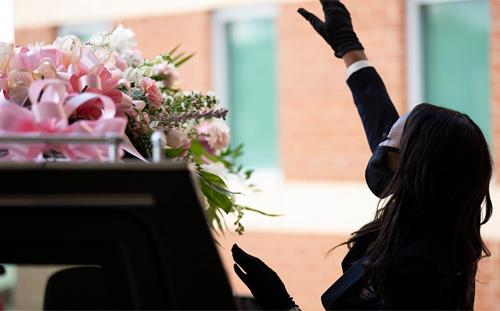
New Orleans, it seems, is very good at good-byes.
Its funerals are filled with music, color, and passion. "This is what New Orleans does so beautifully," someone says in the latest Frontline offering, Death is Our Business, at 10 p.m. ET, Tuesday (March 23), on PBS (check local listings).
But as the pandemic hit, everything changed. The death toll soared, but the traditions ceased.
Now Frontline visits two Black-owned funeral homes. It's an involving hour that happens to be at the same time as ABC's excellent Soul of a Nation.
Blacks comprise 60 percent of New Orleans' population but 72 percent of its COVID deaths. One funeral home went from four or five bodies a day to 12-15; an embalmer there went two months without seeing her family.
Described as "last responders," these businesses emerged from a time when others wouldn't handle Black funerals. Woodworkers might make coffins, then perform other funeral duties themselves.
One New Orleans funeral home featured here has been around for 138 years; another is even older: A seamstress got her husband out of slavery; they started their business after the Civil War.
Soon, funerals became an art form. There are singers, jazz bands, horse-drawn carriages, and a parade (with bystanders joining) leading to the cemetery.
Then came COVID, and it all stopped. The service for jazz great Ellis Marsalis – who taught his gifted sons, plus Harry Connick and others – would have drawn a giant crowd, but he died of COVID on April 1, as the pandemic peaked. Only 10 people were allowed in the service.
Four months later, when Kim Boutte (a popular Mardi Gras queen) was killed by a stray bullet, the city relented slightly. It allowed 100 people in the funeral home; another 1,000 were waiting outside for the procession.
It was a rare return to what New Orleans does so beautifully.